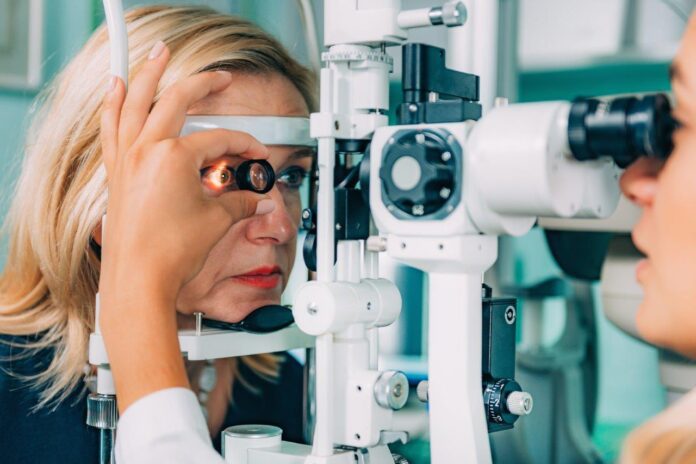
An employment webinar run by the Macular Society has offered key help and support to people with sight loss.
The Macular Society was joined by representatives from Support 4 Sight and North Wales Society for the Blind to raise awareness of the challenges faced by those seeking work either as an employee or self-employed, as well as offering tips and advice for securing a job.
The session also discussed Access to Work, a Government scheme which can help you get or stay in work if you have a disability or physical or mental health condition.
Nick Thomas was diagnosed with Stargardt disease when he was 19 years old. Now a Development Officer at North Wales Society for the Blind, he openly discussed how he had to adapt in the workplace as his sight loss worsened over time.
Nick worked in sports centres and the leisure industry from a teenager, he qualified as a lifeguard and was a sports coach but there came a point where he could no longer work in sports centres in a role he was used to because of his sight.
He said: “I looked back on the skills I had developed over the two-three years I had worked in sports centres and I found my way into a sports development role…I moved from a hands-on coaching and supervising role into one where I was developing and facilitating after-school sports clubs.
“I was now developing a way of developing coaching, building my confidence and skillset,” he added.
Zsuzsi Szabo works at Essex-based Support 4 Sight and has 16 years’ experience of supporting people who are either blind or partially sighted. Her message was around belief and overcoming your sight loss to be the best candidate for a role.
She said: “Just because you have a disability, it definitely isn’t going to define your skillset, your ability, your knowledge and all the potential things you could do.
“Visual impairment is a major part of your life and it’s something you need to understand and know how to deal with it. As you live with sight loss you are an expert in how to live your life with it, but there’s so much support out there.
“If you can advocate for yourself in front of an employer I am certain they will employ the right person, rather than someone who is fully sighted but not the right person [for the job].”
Their tips for a person with sight loss seeking employment:
- Volunteering – if you are not sure about working full-time or part-time, a volunteering role can dip your toes into a work environment before deciding if you are ready for the workplace.
- Apply for courses – Learn extra skills to help support you in your desired job role. They can be free and offer the chance gain more knowledge.
- Set achievable short-term goals to stay motivated.
- Don’t be put off about applying – not being fully-sighted does not mean you can’t do a specific job
- Be prepared to develop your skills if your sight loss worsens. Be adaptable and find where you can still use your skillset down the line.
- Be open minded about job roles and consider what interests/motivates you to leave the house?
- What are the financial implications? Would you be better off financially through a specific job? Ensure the salary will cover travel costs but will you lose benefits?
Watch the full webinar on the Macular Society YouTube channel.
For more information on macular disease, call the Macular Society on 0300 3030 111 or email help@macularsociety.org

| [donate]
| Help keep news FREE for our readersSupporting your local community newspaper/online news outlet is crucial now more than ever. If you believe in independent journalism,then consider making a valuable contribution by making a one-time or monthly donation. We operate in rural areas where providing unbiased news can be challenging. |



















